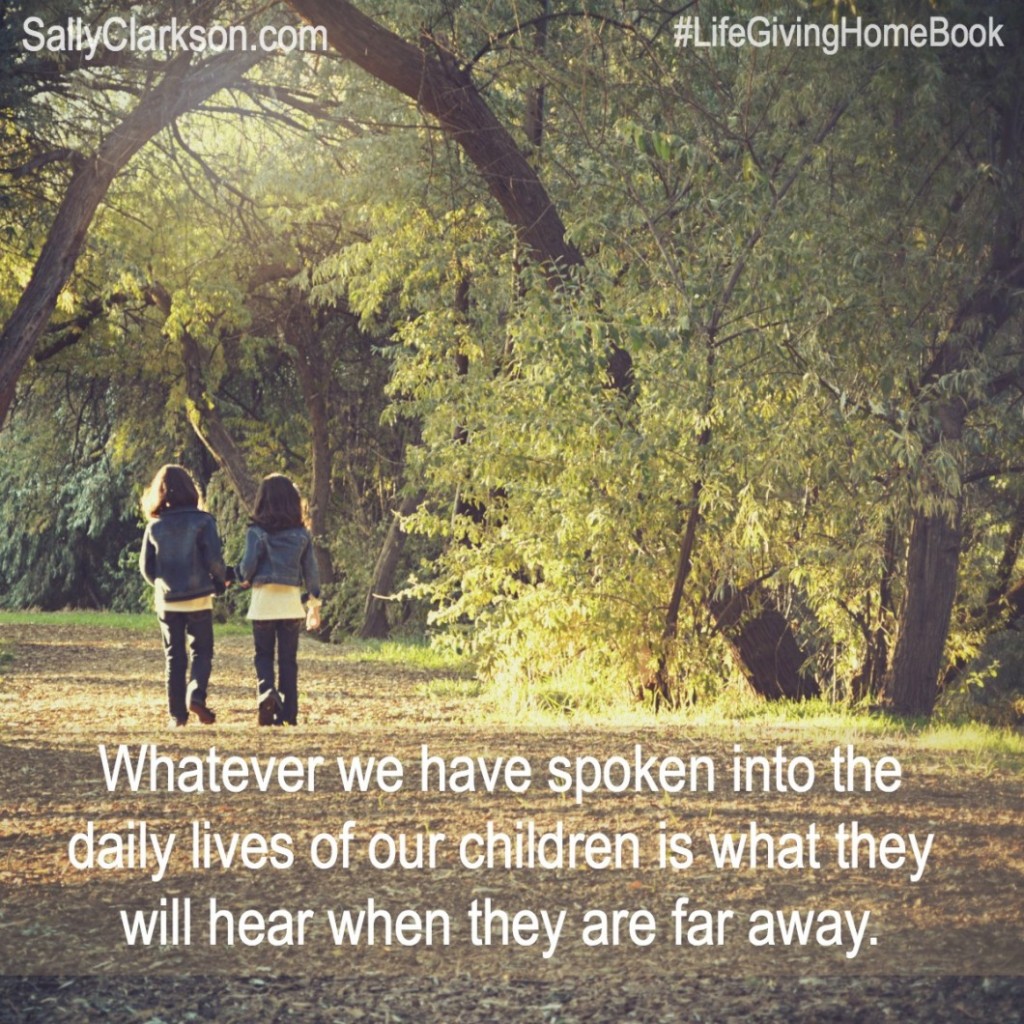Unwinding in my cozy little library, I was so engrossed in my book that I didn’t even realize the sun was setting. But then I was jolted out of my reverie by the familiar sound of my cell ringtone.
“Hi, Mama!” chimed the familiar voice of one of my adult children. “I’ve been really busy, but I just needed to hear your voice, to know that you love me and are thinking about me. You know, there’s no substitute for your words of love. Helps me feel closer to God somehow.”

I get a call like that nearly every day—and I make a few calls of my own. My children and I are a tight-knit group, joined at the hip, fast and dedicated friends. They all live and work in very secular arenas and are taxed to their souls on a regular basis. All four travel all over the world for their jobs and schools, have their own groups of friends, and function as reasonably mature adults.
And yet, wherever they go, it is very difficult to meet adults who hold their values, beliefs, morals. Intentionality in our friendship costs time, thoughtfulness, heart investment. Yet, our friendship grows deeper and deeper through the years because they feel a need for a touchpoint with someone who "gets" them and loves them as they are. Next to Clay, my children are my best friends, and we remain their dearest companions. But we are also the tangible fingers and arms of God to keep them in the circle of his love.
Because of back surgery, Clay cannot travel much. But he regularly sends me to places my children live as a "live" picture of our love, cheerleading and devotion to helping them stay fast in their faith. A part of our calling of "home" is to give our children a stable sense of the good foundations of what we believe and then to help them have reason to keep faithful to those foundations after they leave the physical structure of our home. Home is the place we build vibrant, life-giving relationships that last a lifetime.
So it was with Jesus and His disciples. Sharing meals, walking together on dusty roads, having exuberant discussions about theology, sleeping under the stars, sharing hopes and fears, and enjoying some good laughs in between it all—this was the nature of Jesus’ friendships. He wove His love and grace into the lives of all who were close to Him. And as a result they were energized, driven, and excited to spend the rest of their lives telling the world about their closest and most trusted Friend.
When the relational aspect is removed from faith, Christianity becomes a list of rules to keep, a dry obedience to abstract facts. The heart is left feeling perpetually unsatisfied. Over time, doubts and insecurities creep into our faith, and we may begin to develop guilt for not being spiritual enough. We start to hope that no one notices our failure, and—the worst consequence—we may even try to hide our dissatisfaction from God.
This is not even remotely God’s will for our lives. It is a lie of the evil one whispering to us in our inadequacy. Satan wants us to live in condemnation for all the ways we are imperfect in loving. The insidious thing is that the deceptive narrative is self- perpetuating.
It not only makes us believe that God just wants our obedience and good works but also makes us feel like failures when we inevitably don’t live up to those standards, and this causes us to draw even further away from God.
When we observe the lives of those closest to Jesus in His earthly life—the disciples—it becomes immediately apparent that they were alive with faith and hope. Even as flawed human beings, they were filled with a power that can come only from being loved and accepted by their Savior.
This liberating love is still offered to us. God wants to be as close to us as Jesus was to His disciples and to inspire the same kindness and goodness in our hearts. If we as parents can learn to embrace our relationship with God, we will be empowered to create for our children and anyone else who crosses our doorsteps a true culture of love—a home environment where the life of God is breathed through all moments and love becomes the fuel for living with hope, purpose, and expectation.
Ultimately, God desires that we instill in the hearts of those around us the same love that has been made real in our lives. That is the crux of discipleship. Our disciples—whether they be our children, our friends, or anyone else in our care—must eventually be sent out into the world as Jesus sent out His disciples.
When they have grasped the vision of the Kingdom and the King who rules it, they, too, can be world redeemers. But they need to be prepared. Jesus knew He was sending out His disciples into a world where they would often be rejected and abused. He taught them how to handle painful encounters and asked the Father to keep them from the evil one while they were about His business. And over and over, He infused them with His love and taught them to love one another.
Our children, too, will go out into an antagonistic, difficult society. But the power that will hold them fast to the ideals they learned at home will be the bonds of love and the deep companionship we shared with them, the compassion and kindness and grace we gave to them during hard times, and the constant reassurance that they are precious to us and to God. Whatever we have spoken into the daily lives of our children is what they will hear when they are far away.

